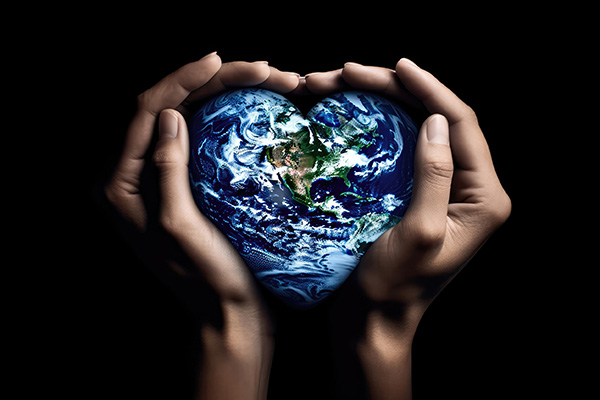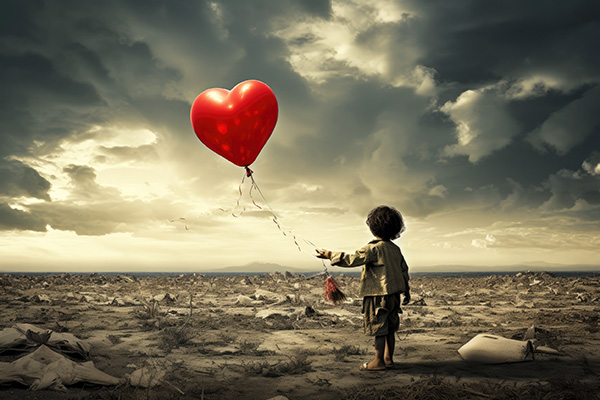karmic debt
Maybe This Is How We Mend Our World
 I have certainly been trespassed against over the years, as I suspect you may have too: maligned, misunderstood, abused, betrayed. Many of us have been hurt and wounded.
I have certainly been trespassed against over the years, as I suspect you may have too: maligned, misunderstood, abused, betrayed. Many of us have been hurt and wounded.
For many of us lifetimes of pain also seem to rise to the surface now, as if this era has come to collect on both the debts and the blessings.
Some of my wounds in this lifetime occurred at a young and tender age, when there seemed to be no healing granted; when the best I could do then was retreat and lick my wounds alone. There was no wise elder at my side, no sacred ceremony to mark the grief, no balm from the spirit realms. Just the aching silence of pain, and the quiet hope that one day, perhaps, I would understand why.
Since that time so long ago, I have also seen much vindication. This ability to witness what I have called “the coming around of the going around,” hasn’t been only in seeing karmic issues resolved for little slights, but for big wounds as well.
I’ve watched as Spirit, with its own perfect timing, allowed clarity and closure to emerge…sometimes years later, sometimes through unexpected channels. There is a strange and sacred justice to the Universe that rarely moves on our schedule, but always, always moves.
Justice. Yes, always in the end. But what of forgiveness?
It all shifted for me when I came to know the ‘big picture’ in the powerful prayer, “forgive us our trespasses, as we forgive those that trespass against us.” These words are not just religious rote, but an energetic key to spiritual evolution. Continue reading
Why Our Souls Cannot Afford A Lack Of Empathy
 Life has a way of weaving unexpected lessons into even the most ordinary or practical situations. Sometimes what begins as a business transaction or a casual encounter becomes a doorway into something far more meaningful, a reminder of the deep human connection we are all longing for and the healing power of simple empathy.
Life has a way of weaving unexpected lessons into even the most ordinary or practical situations. Sometimes what begins as a business transaction or a casual encounter becomes a doorway into something far more meaningful, a reminder of the deep human connection we are all longing for and the healing power of simple empathy.
I recently found myself in a situation that reminded me of this truth in the most unexpected way.
I am in the process of selling two homes in different states, which has been quite challenging. Anyone who has sold property knows how stressful and complicated it can be…much less two properties at the same time!
Over the past couple of months I had spoken to quite a few realtors and interested buyers. One agent initially showed strong interest in one of my homes. He seemed genuinely eager, but then he suddenly disappeared without explanation. My calls and messages went unanswered. While I did not sense that he had completely lost interest, I could not wait indefinitely and had to continue moving forward with my plans.
Still, I could not shake a quiet concern for him, as though something more was happening behind the scenes, and the feeling carried a weight of unease.
Several months later, he reached out unexpectedly, asking if I had sold my property yet. He apologized for vanishing and then explained the reason for his absence. He had been in a serious car accident and had spent time in the hospital. His injuries required surgery, and bolts had been placed in his foot. Now he was in physical therapy, learning to walk again.
When Love Feels Right, But The Timing Is Wrong
 Timing in relationships is one of those things that doesn’t always get the attention it deserves, but it plays a huge role in whether a relationship thrives, struggles, or falls apart completely.
Timing in relationships is one of those things that doesn’t always get the attention it deserves, but it plays a huge role in whether a relationship thrives, struggles, or falls apart completely.
Timing isn’t just about when you meet someone – it’s about where you are in life and what you’re ready for, both personally and spiritually, and whether the circumstances around you support the growth of the relationship.
Maybe you’ve met someone at a certain time in your life and thought, “Wow, this is perfect. This is exactly who I need in my life right now.”
Then you move forward, determined to make it work.
But somehow life gets in the way – distance, responsibilities, personal growth, outside pressures, trauma wounds, or unresolved karmic debt – and suddenly what seemed so perfect turns into something stressful, confusing, or even painful. You wonder what went wrong because in your heart you believed it was right.
Or maybe you’ve been on the other side. Someone comes into your life and they’re ready for more than you are. Maybe you love them, but something inside you says, “Not yet. I need more time.”
But they are insistent, determined to make it work, and you go along, unsure but hopeful. And then it all blows up – because deep down you weren’t really ready and they didn’t want to wait.
New Year, New Habits, And A New You!
 Many people make resolutions every year that are never kept. They make a sincere effort for a month or so, and then it just slips here and there until whatever they decided to do just falls by the wayside. This is normal, and you should never beat yourself up if you make a resolution or promise and don’t follow through. Growth is a process, not a straight line.
Many people make resolutions every year that are never kept. They make a sincere effort for a month or so, and then it just slips here and there until whatever they decided to do just falls by the wayside. This is normal, and you should never beat yourself up if you make a resolution or promise and don’t follow through. Growth is a process, not a straight line.
When I decide to do something, the first thing I do is meditate on it. I ask my guides and angels, “Is this right for me? Will this improve my life? If I don’t do this, will it hurt me or someone else? If the answers are yes, yes, and no, then I know it’s the right thing for me to do.
I do not reserve this for New Year’s resolutions. I do this throughout the year whenever I feel spiritual growth within myself or experience something that sparks change, whether positive or negative. A new year can begin any day you decide to change some aspect of your life. It doesn’t have to be January 1st; it can be any day.
Personally, I make a new “resolution” each month. At the end of each month, I reflect and ask myself if I’ve accomplished what I set out to do. If not, I set it aside and move on to something new. Eventually, I return to the unfulfilled goal, knowing that the timing wasn’t right. I don’t beat myself up about unfinished goals; instead, I send them love and leave them for later.
My most important resolution is to get closer to Spirit. I strive to understand what Spirit has in store for me and to guide me to become the best version of myself from the inside out. The outward appearance can be dressed up or down, but the true self must be healed, clear, and joyful. That joy doesn’t come from another person or thing – it comes from loving myself as it should be for you. Love yourself as you are in this moment, and nurture the new version of yourself with daily love, meditation, and surrender to your higher self.
Karmic Healing: Can You Handle The Truth?
 In the famous courtroom drama A Few Good Men, Jack Nicholson’s character, Colonel Jessup, exclaims in an iconic movie moment, “You can’t handle the truth!”
In the famous courtroom drama A Few Good Men, Jack Nicholson’s character, Colonel Jessup, exclaims in an iconic movie moment, “You can’t handle the truth!”
I suspect this scene has become legendary in movie history because it resonates so deeply with most people. On some level, many of us sometimes struggle to face the truth about ourselves and our lives.
Whether it’s difficult memories, unhealed wounds, failed relationships, or unspoken regrets, facing our truth can be challenging, even traumatic or overwhelming.
Yet, from a spiritual perspective, facing and owning our truth is one of the most powerful steps we can take on our path to karmic healing and soul growth.
Our soul journey is a karmic balancing act in which the energy we put out into the world eventually comes back to us. When we hide from our truth – whether through denial, justification or avoidance – we accumulate karmic debt.
Like a heavy boulder that we carrry around, karmic debt hinders our soul growth and spiritual progress. On the other hand, when we consciously choose to face our truth, we release this burden and open ourselves to healing, growth, fulfillment and inner peace.
Denial is our most common response to unpleasant truths. We tend to avoid acknowledging aspects of ourselves that we find unattractive, justify our negative behaviors, and make excuses for our bad choices and failures in order to protect our fragile human egos. However, these “untruths” build up over time. By avoiding them, we create layers of illusion that distance us from who we really are and cloud our understanding of our soul purpose and the divine spark within.
The Essential Spiritual Practice Of Self-Love
 The first person each of us is meant to love is ourselves. But somewhere along the way, many of us forget or overlook this essential form of love.
The first person each of us is meant to love is ourselves. But somewhere along the way, many of us forget or overlook this essential form of love.
In a world that tends to reward judgment and criticism while valuing perfectionism and material success, many of us become estranged from our own worth and divine essence by falling into these societal patterns of self-judgment and negativity.
To make matters worse, what most people caught in this web of self-criticism do not realize is that unconditional self-love is the very foundation of our soul journey in this lifetime. In fact, it is the essential spiritual practice for a more joyful, deeply meaningful existence and a cornerstone of our spiritual evolution.
We often find ourselves caught up in self-doubt, judgment, and the pursuit of external validation. These patterns hinder our connection to our true essence and limit our ability to radiate divine love and compassion. Embracing unconditional self-love frees us from these limitations and allows us to step into our authentic power.
This journey begins with self-awareness and compassion. By observing our thoughts and feelings without judgment, we can identify the limiting beliefs and negative self-talk that have shaped our perception of ourselves. With gentle understanding, we can release these self-imposed chains and replace them with affirmations of self-worth and acceptance. When we practice self-compassion, we create a safe space for ourselves to heal and grow, embracing our imperfections as part of our unique journey.
